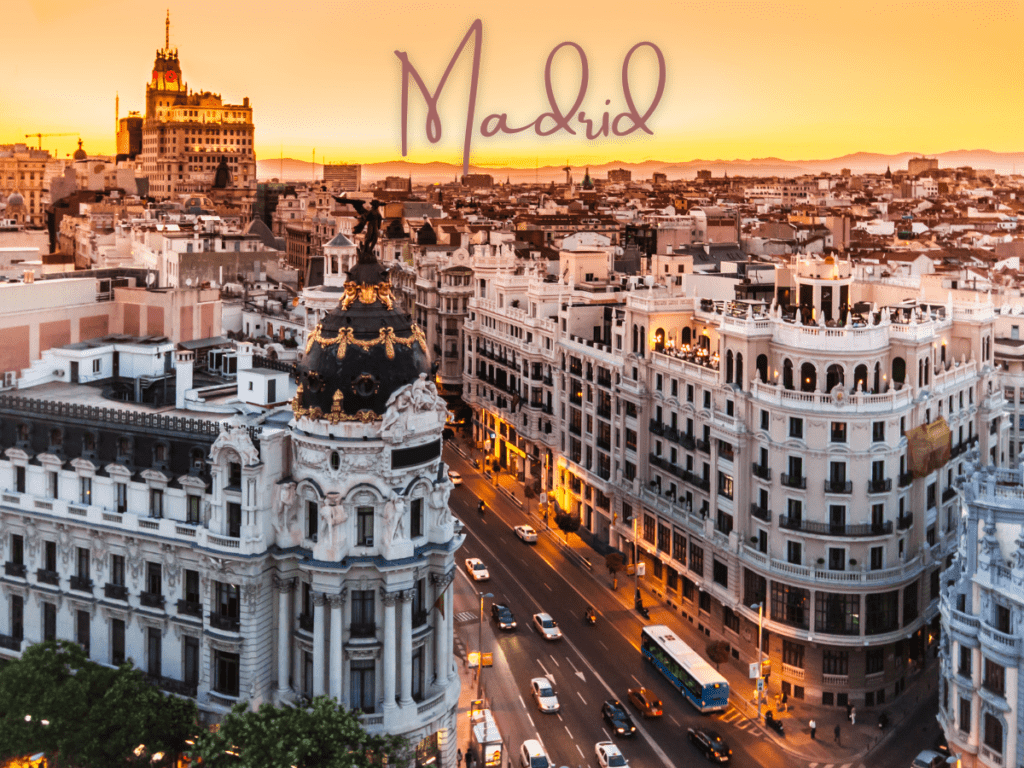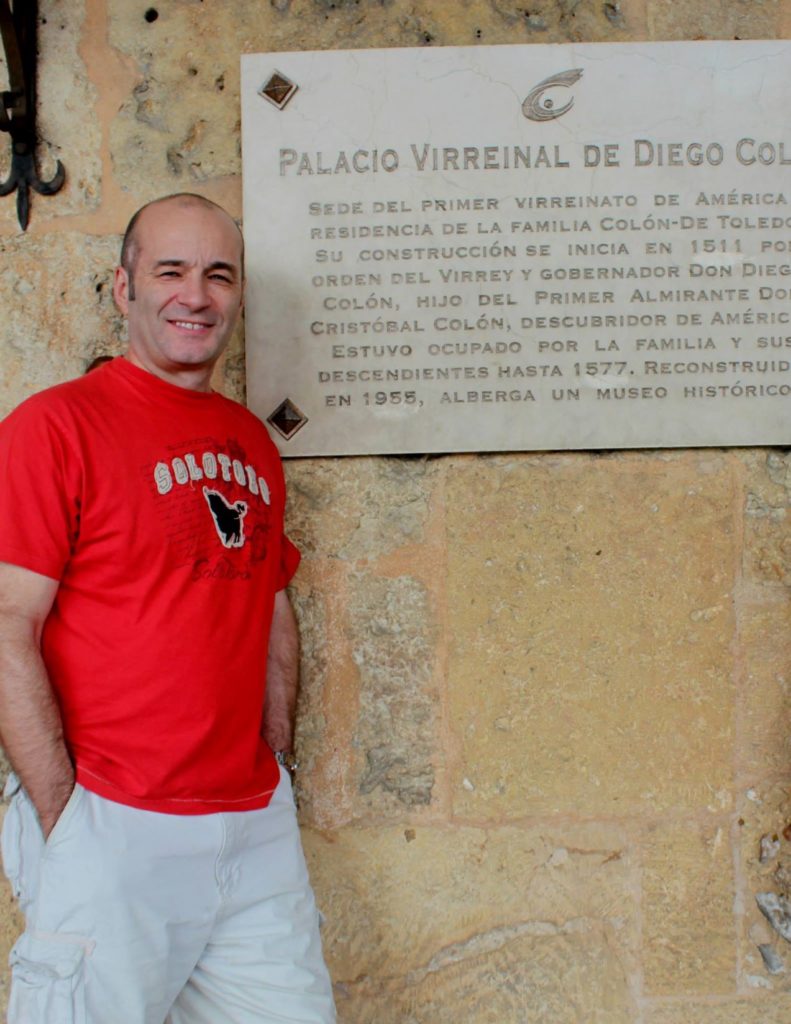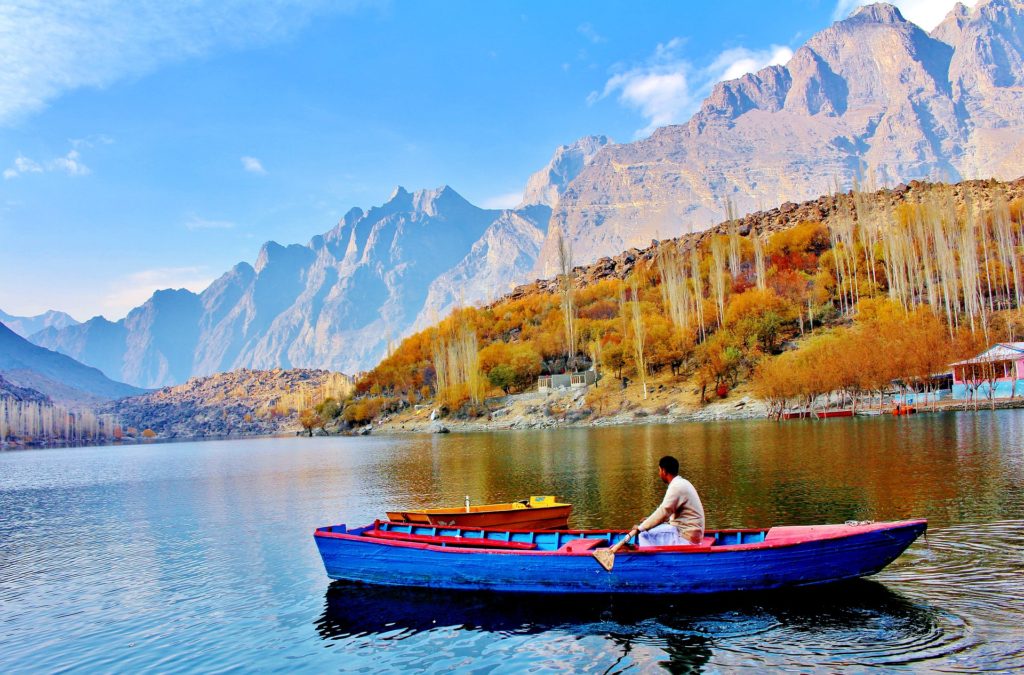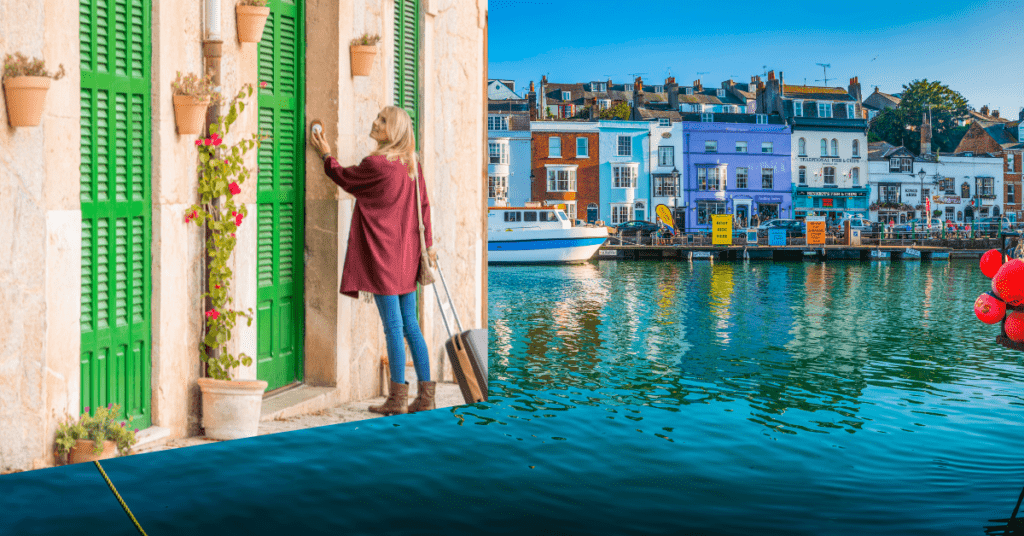While it is not traditionally listed amongst the top European tourist cities along with the likes of Paris, Rome, London, Amsterdam, Lisbon and Barcelona, it really should be.
Madrid is the equal of all, and we prefer it to many. Fortunately, this does mean that even when you visit in the height of summer, you won’t feel completely smothered by other travellers. That said, it can get super-hot, so we’d recommend visiting in spring or fall when the lower temperatures make it so much more comfortable.
We wanted a Top 10 list but this made it tough to whittle it down to just 10, as it meant leaving out some pretty special places. After some healthy and vigorous debate between Monique and me, this is our list of 10 top things to do in Madrid.
Table of Contents
1. Atocha Train Station
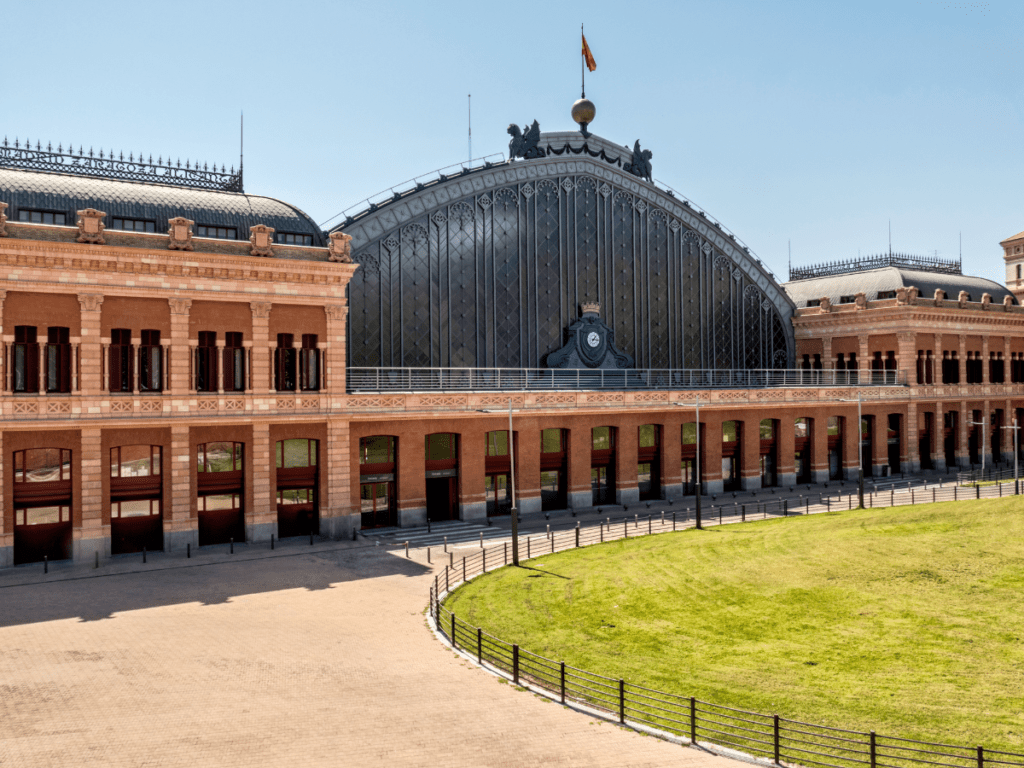
It may sound a bit nerdy, but I adore railway stations. I enjoy being taken back in time by quaint little English stations, such as Oakham and Balsicas-Mar Menor in Murcia Province, which made me feel like I was an extra in an old western movie.
Even more, I love the bustle and excitement of major train stations, especially when they are architectural marvels such as Grand Union in New York and St Pancras in London. But as I said, a bit nerdy and not for everyone.
The one station that bucks that trend is Madrid Puerta de Atocha, which would be stunning even if not a single train or traveller passed through it.
In 1992, the historic station building was renovated, and the tracks removed to be replaced by a lush tropical garden with more than 7,000 plants from all over the world. It’s a gorgeous repurposing of a historic building.
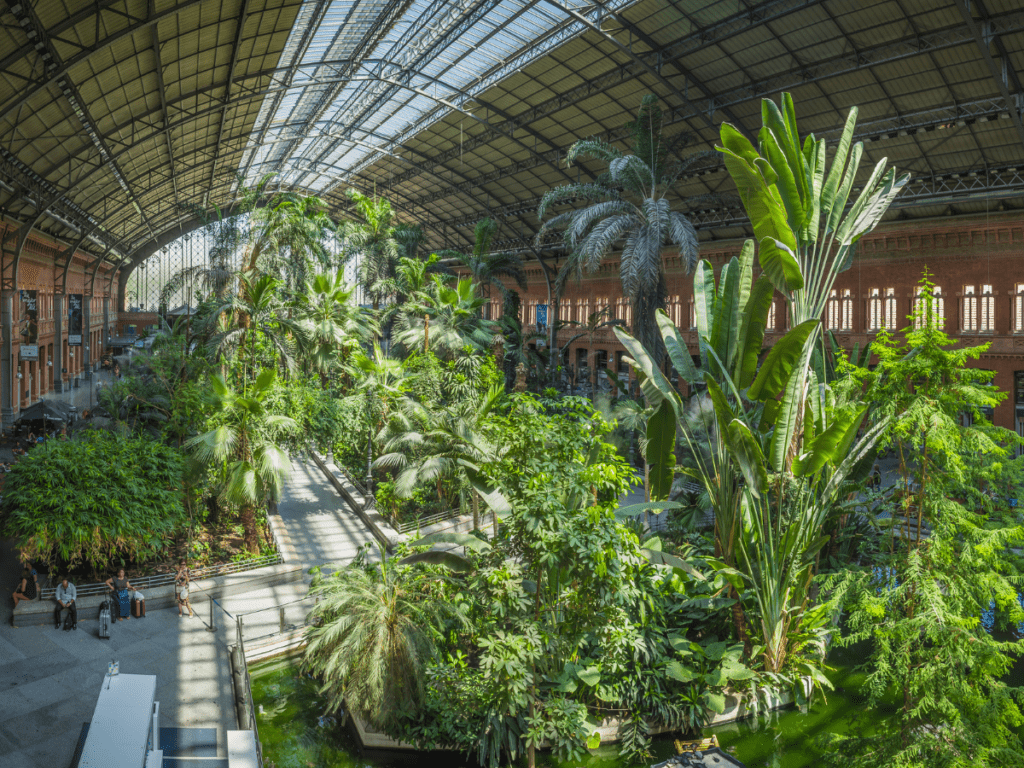
If you are leaving Madrid by train, why not arrive 30 minutes early? Then you can enjoy the unique atmosphere at an “outside” table at one of the many cafes or restaurants while you wait for your train to depart from the adjacent modern terminus building.
In our case, we were fortunate to arrive at this amazing building, as we travelled to Madrid on a wonderful high-speed RENEFE train. It was a great start to our first visit to the Spanish capital.
2. Plaza Mayor
At the heart of every major European city is a special square or public space. Madrid, though has two, Puerta del Sol and the slightly more well known, Plaza Mayor.
Plaza Mayor is unique because it is in many ways a giant courtyard rather than a conventional square, which is surrounded by different and separate buildings. It is a neat rectangle bordered by three-story buildings with balconies that overlook the square.
As there are no breaks between any of the buildings, the only way to enter is through one of the many archways under the buildings. Once you are inside the plaza, you can’t help but be captivated by the uniformity of your surroundings. The centre space is completely open apart from a statue of King Philip III on horseback in the centre.
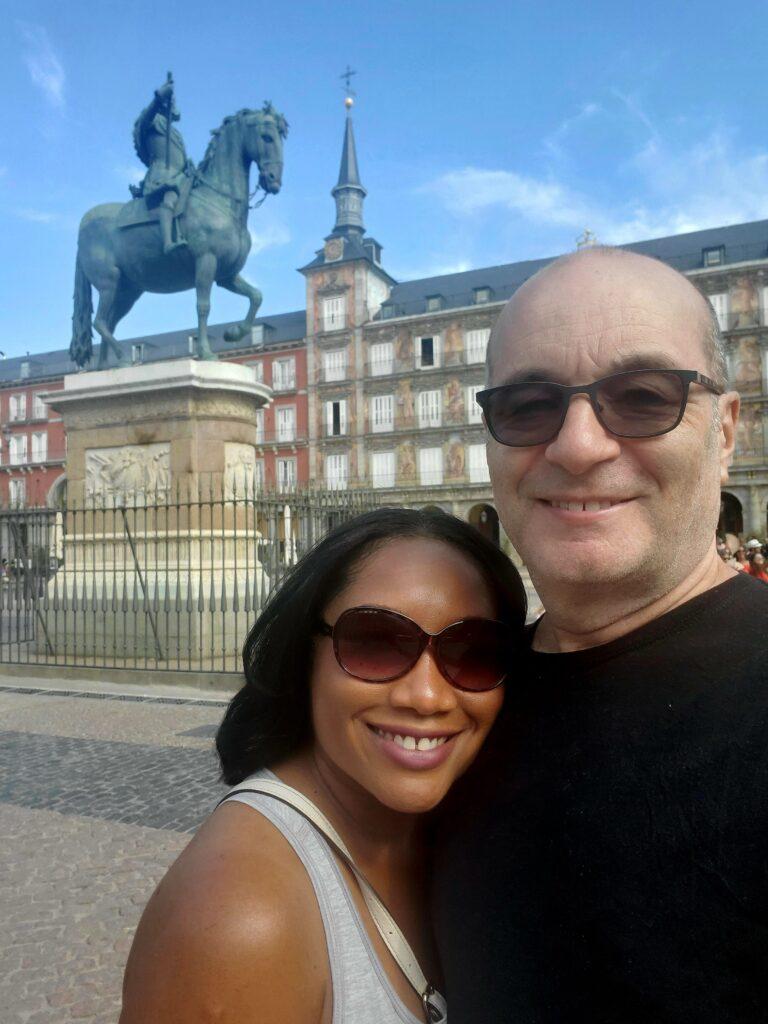
Plaza Mayor is undoubtedly the most touristy place in the city, and it can get quite busy in summer. Consequently, the restaurants and cafes that line the edge are slightly overpriced, by the very reasonable standards of Madrid, and not especially authentic.
I recommend getting there mid-morning and enjoying a coffee or beer as you suck up the atmosphere and enjoy one of Monique’s favourite pastimes of people watching.
3. Mercado de San Miguel
Located a few steps from Plaza Mayor is Mercado de San Miguel or St Michael’s Market. We arrived just as it opened at 10:00 am, which was a great decision, as by noon it was packed.
The wrought-iron structure, originally built in 1916 has been lovingly restored and it is now a foodie’s paradise. While it is tempting to rush inside for the tasty treats, it really is worth a few moments of your time to enjoy the fabulous exterior first.
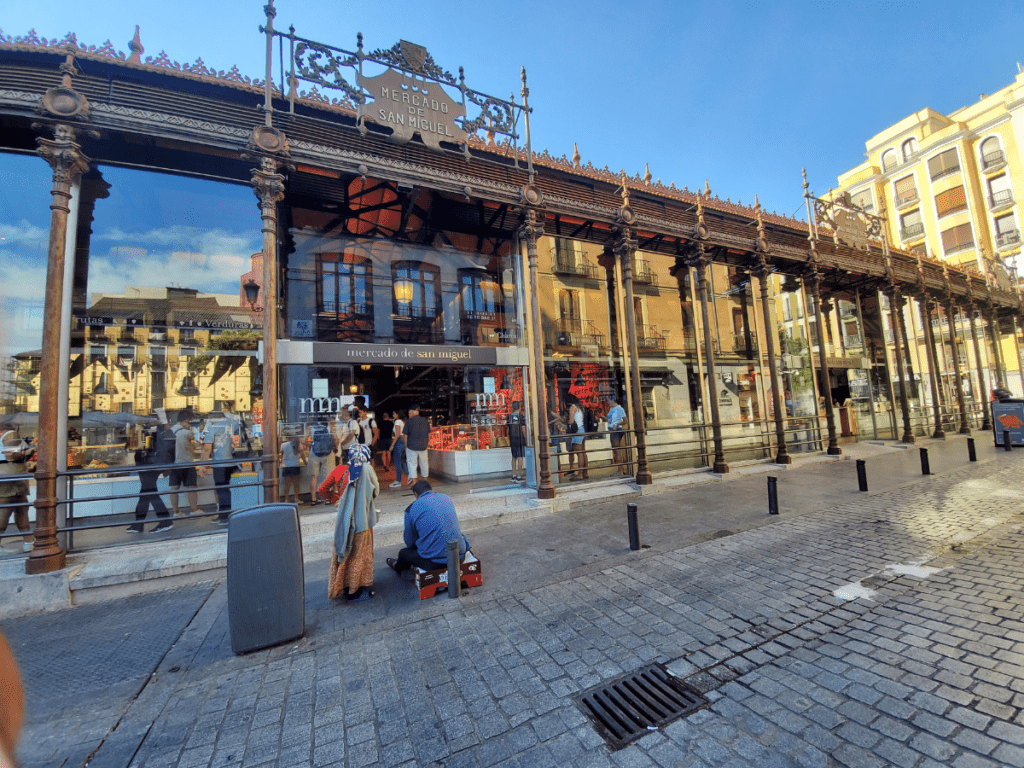
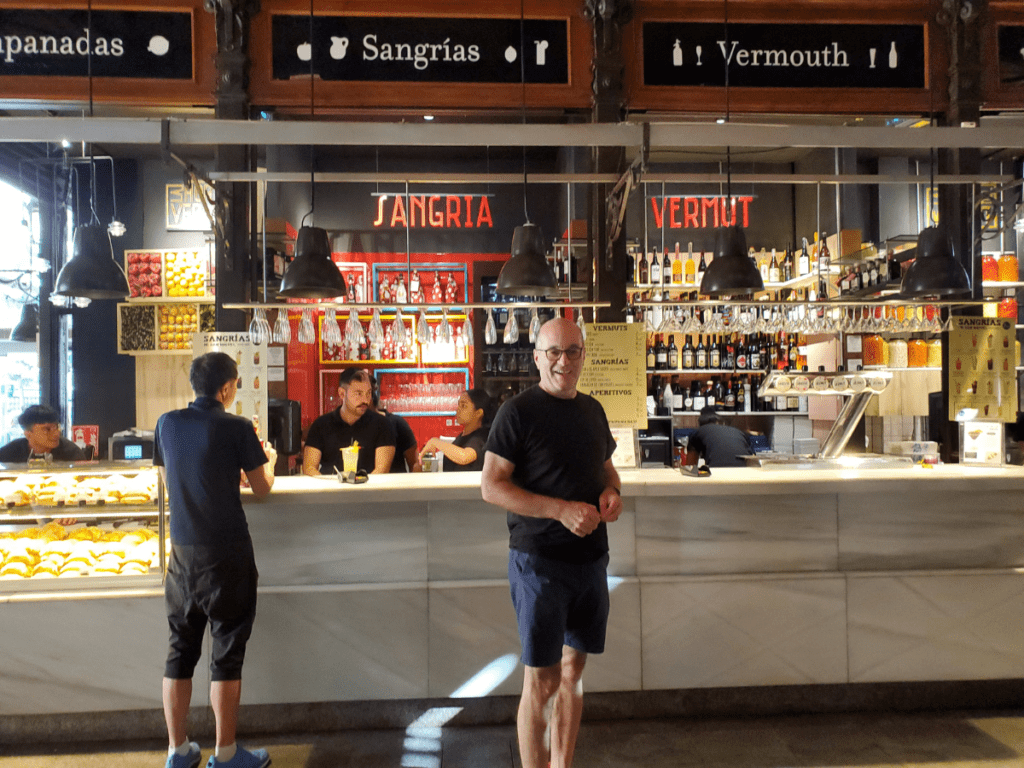
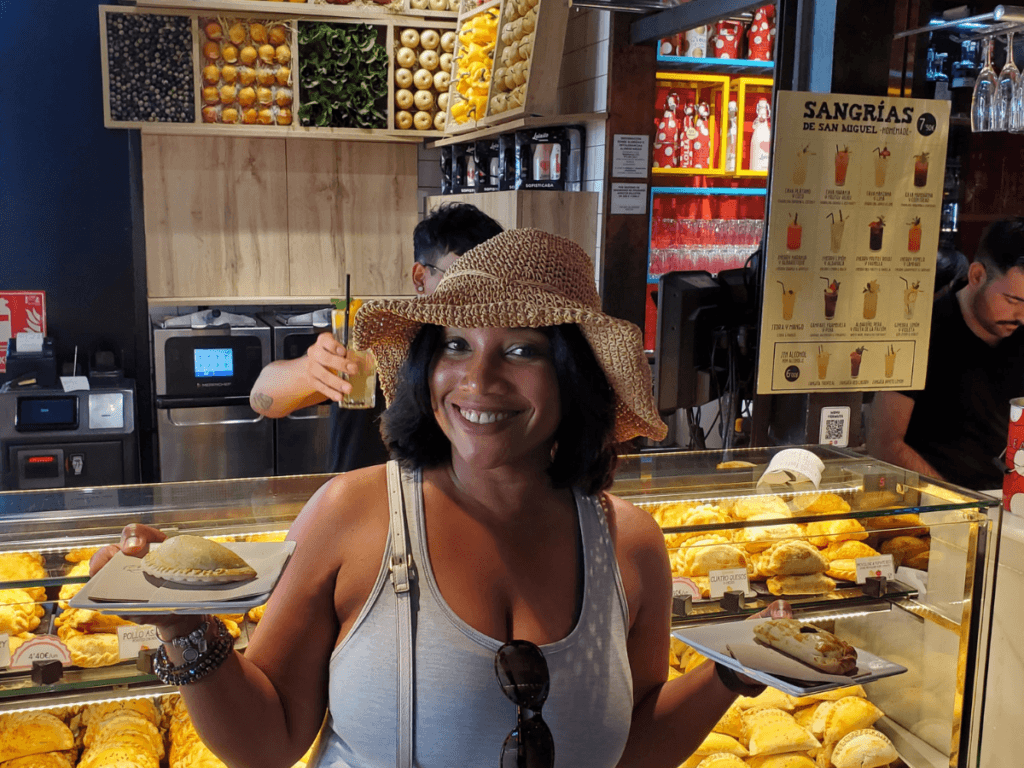
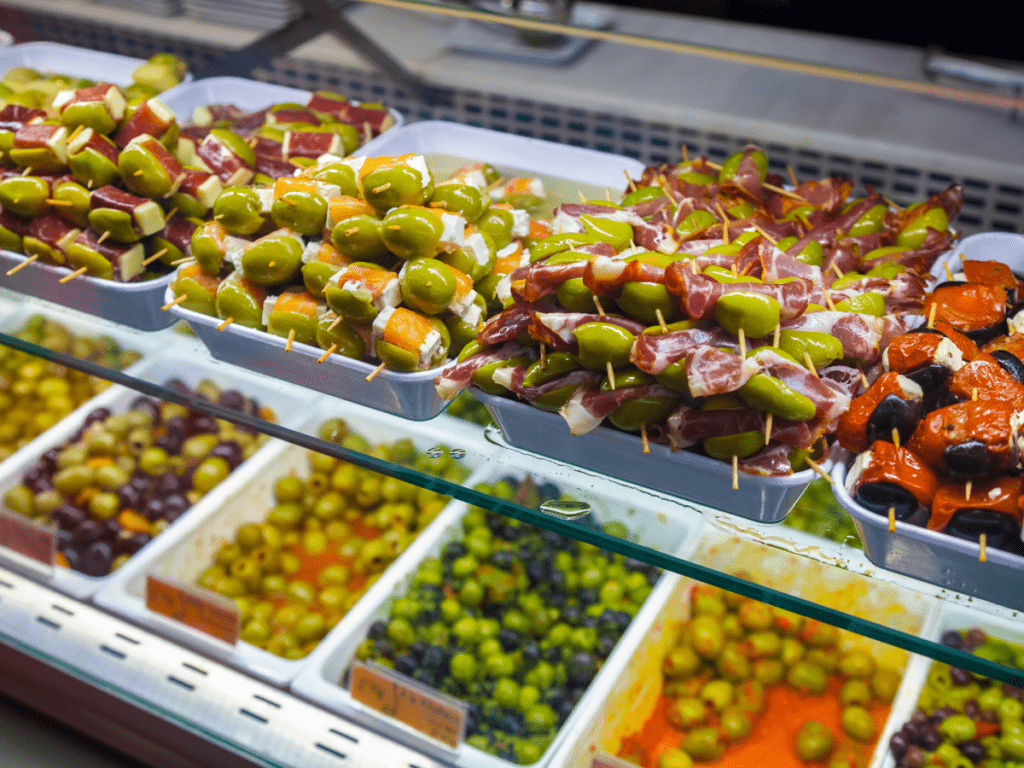
Within the market are more than 30 stalls serving a dazzling array of tapas and seasonal Spanish dishes as well as high-quality meats, fish and cheeses. Monique and I spent almost two hours there, taking it in turns to get up from our table to hunt for the next amazing bite or sip.
We both ate far more than we should, due to the fabulous quality and small serving sizes. We just had to remind ourselves that we were on vacation and that we’d probably rack up at least 15,000 steps on our Fitbits later that day.
4. The Golden Triangle of Art
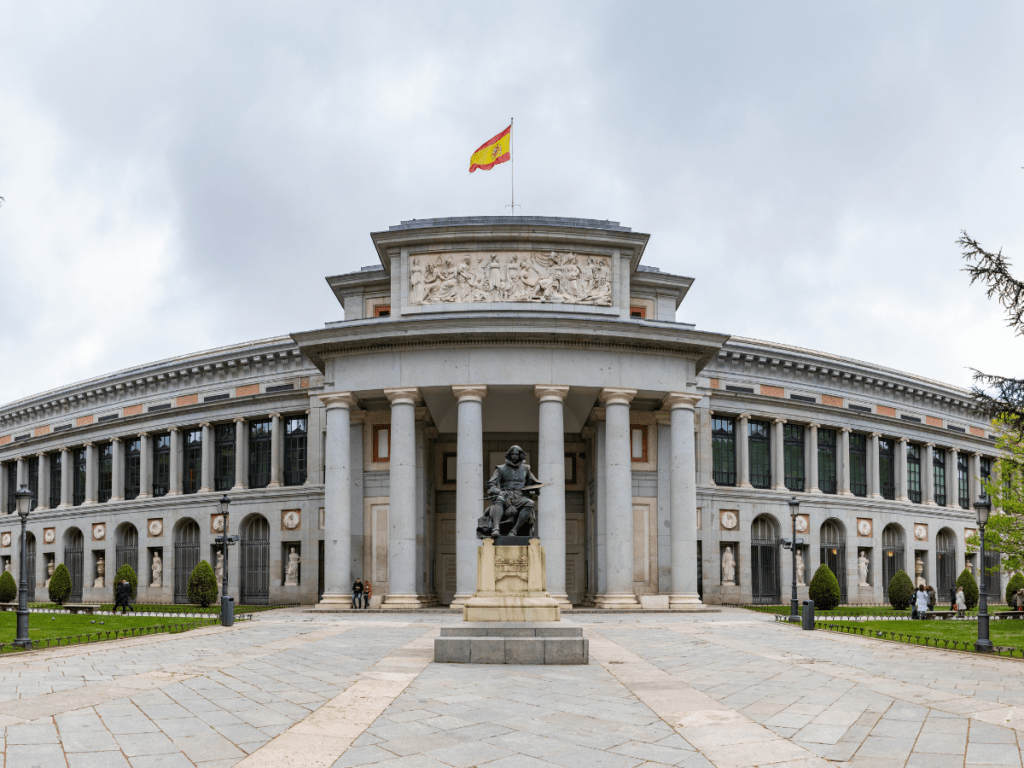
Madrid has three important art museums that are located close together and known collectively as the Golden Triangle of Art. Each museum really requires a full day to get the best experience, but even if you are only visiting for a few days, it’s worth spending a couple hours in at least one of them.
The most famous is the Prado Museum which houses an amazing collection of pre-20th-century art built around the former royal collection.
It is one of the greatest art museums in the world and features pieces by Bosch, Reubens, Titian, El Greco and Goya, who is the most represented artist in the museum. The Prado also houses the largest collection of Italian masters outside Italy.
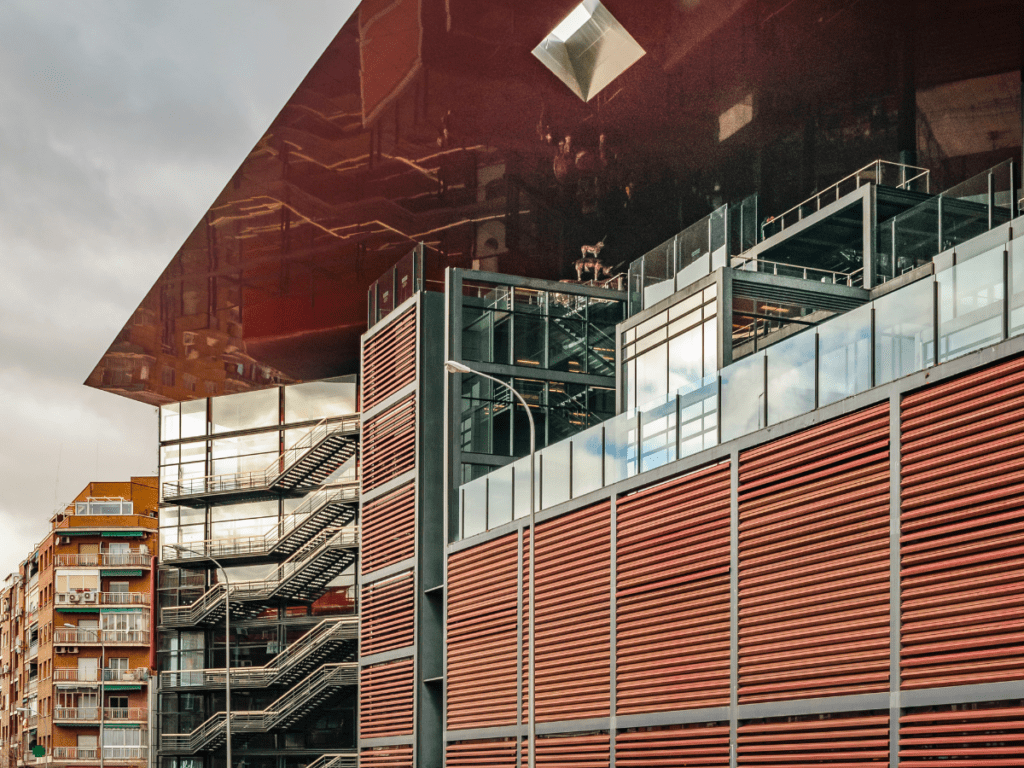
My personal favourite in the triangle is the Reina Sofía, as it is dedicated to modern Spanish art and consequently packed to the rafters with works by Picasso and Dali.
You will also find pieces by modern artists from across the globe including Francis Bacon, Donald Judd, Henry Moore, Nam June Paik, Cindy Sherman, Damien Hirst. If you love modern art half as much as I do, this is the place for you.
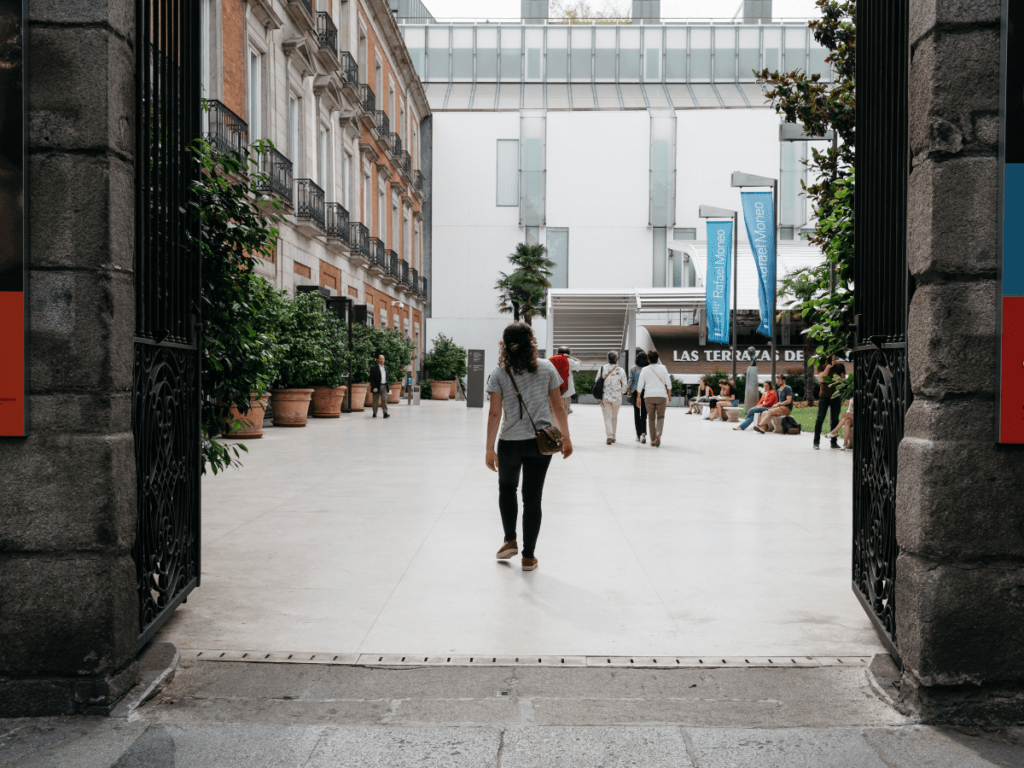
The third of the trio is the Thyssen-Bornemisza National Museum or more simply the Thyssen. It started as the private collection of Heinrich, Baron Thyssen-Bornemisza de Kászon, which was once the second largest private collection in the world after that of the British monarchy.
In many ways, the Thyssen fills the gaps left by the Prado and Reina Sofía, especially in terms of old masters from outside Spain and Italy, although this is a vast oversimplification of what is on offer in the fabulous museum.
5. El Retiro Park
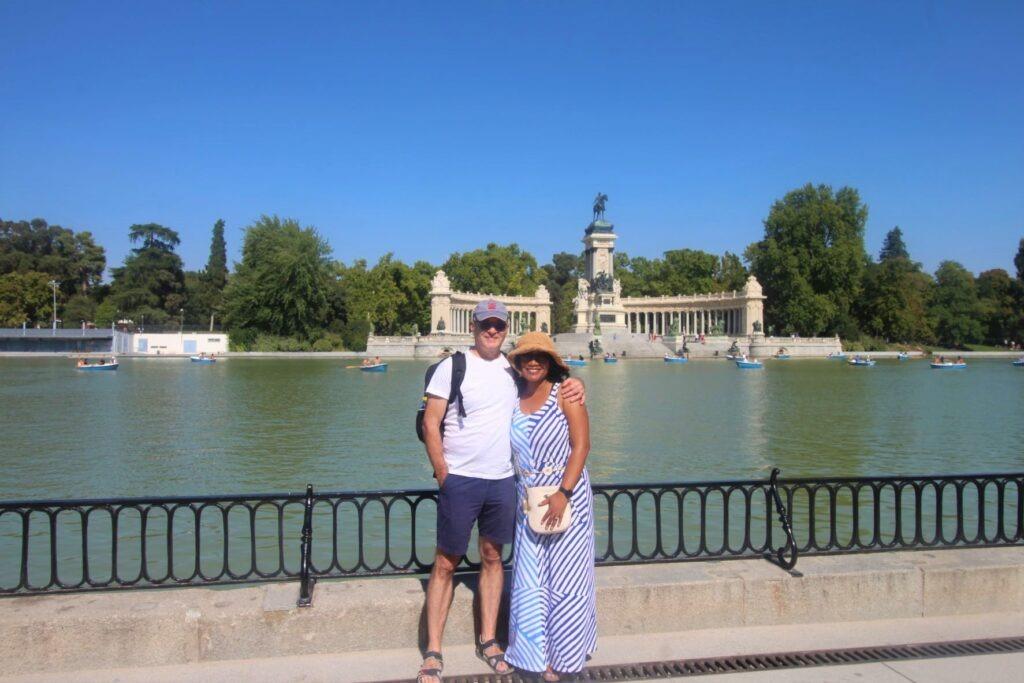
For a stark contrast to the Golden Triangle of Art, head to the nearby El Retiro Park. It was owned by the Spanish royal family until the late 19th Century when it became a public park.
El Retiro is a vast, formal space where you can happily wander around for hours. While some areas can become fairly busy, you are never far away from a picturesque and shady spot for a little peace, quiet and privacy.
You are unlikely to miss the Estanque del Retiro, a large man-made boating pond that is dominated by the massive Alfonso XII monument. There are dozen or so cafes around the pond where you can sit and enjoy a refreshment or pick up some water to carry with you. You can rent a rowing boat here too.
Other highlights of the park include the Rosaleda or rose garden and the beautiful Palacio de Cristal, a glass and iron pavilion inspired by London’s Crystal Palace. Palacio de Cristal is now owned by the Reina Sofía Museum and during the summer it is used as a display location for special art exhibition.
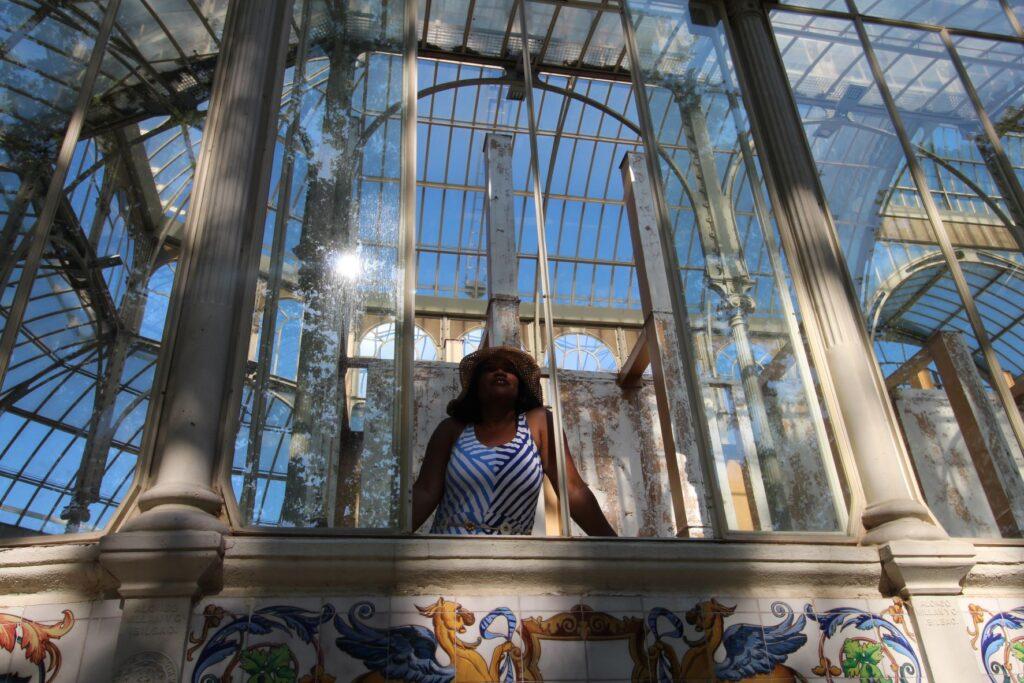
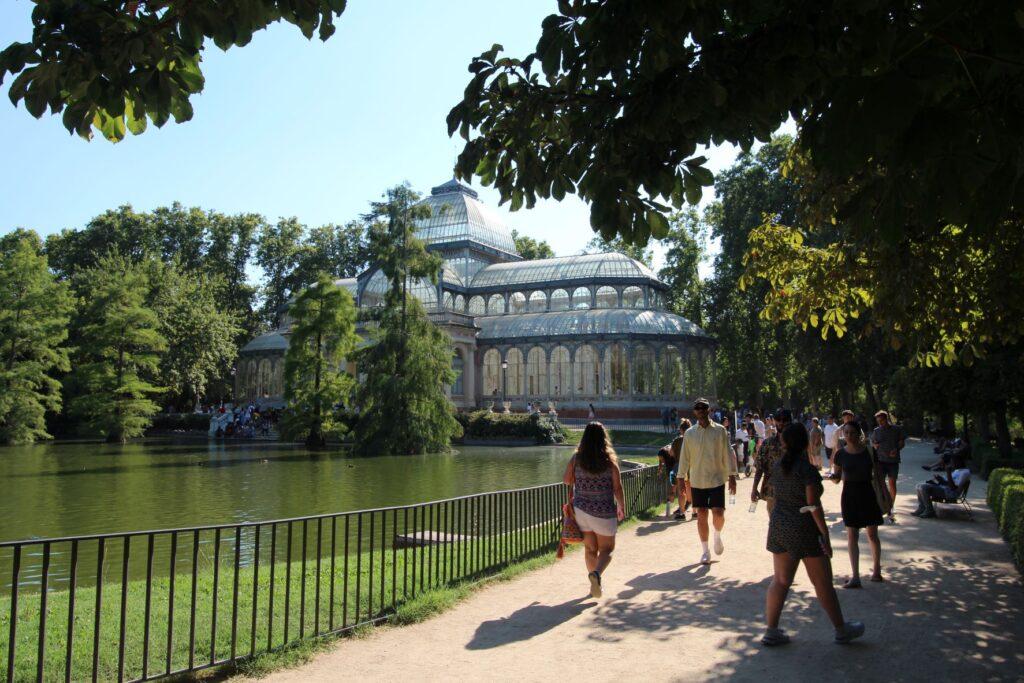
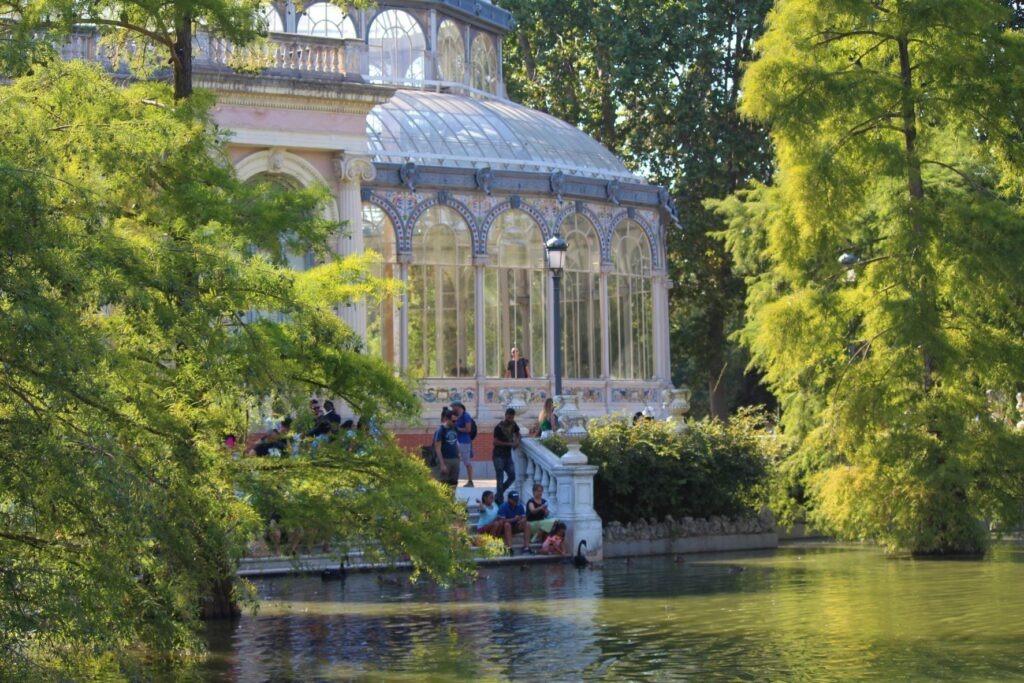
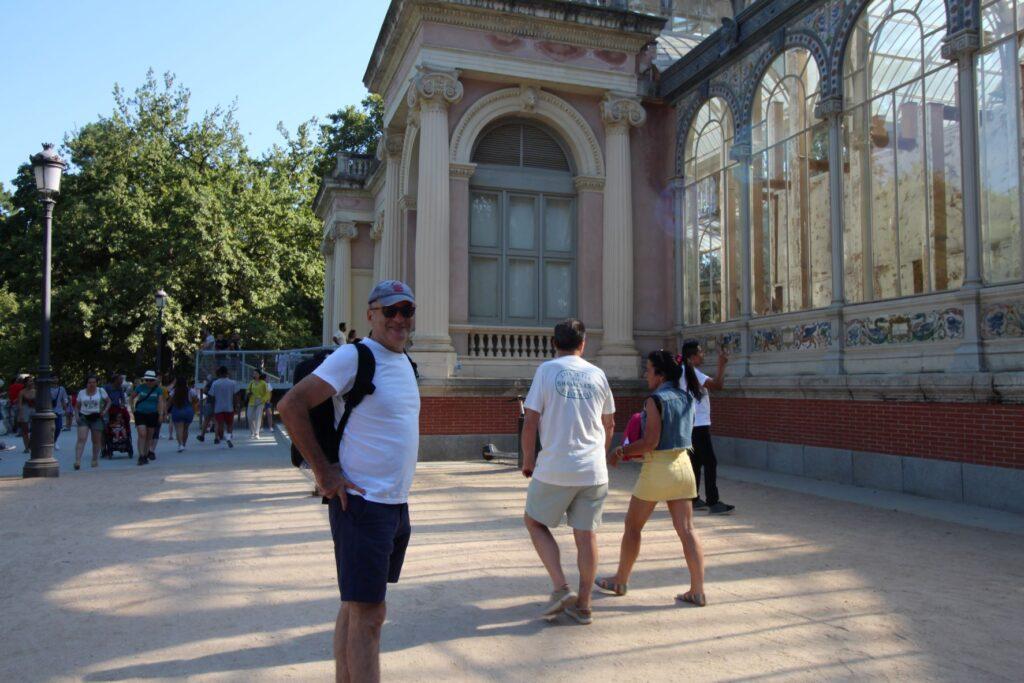
Another El Retiro summer tradition is the free Sunday lunchtime concerts given in the bandstand by the Banda Sinfónica de Madrid. These are always very popular, so bring a rug and picnic and kick-back.
6. Plaza de Cibeles
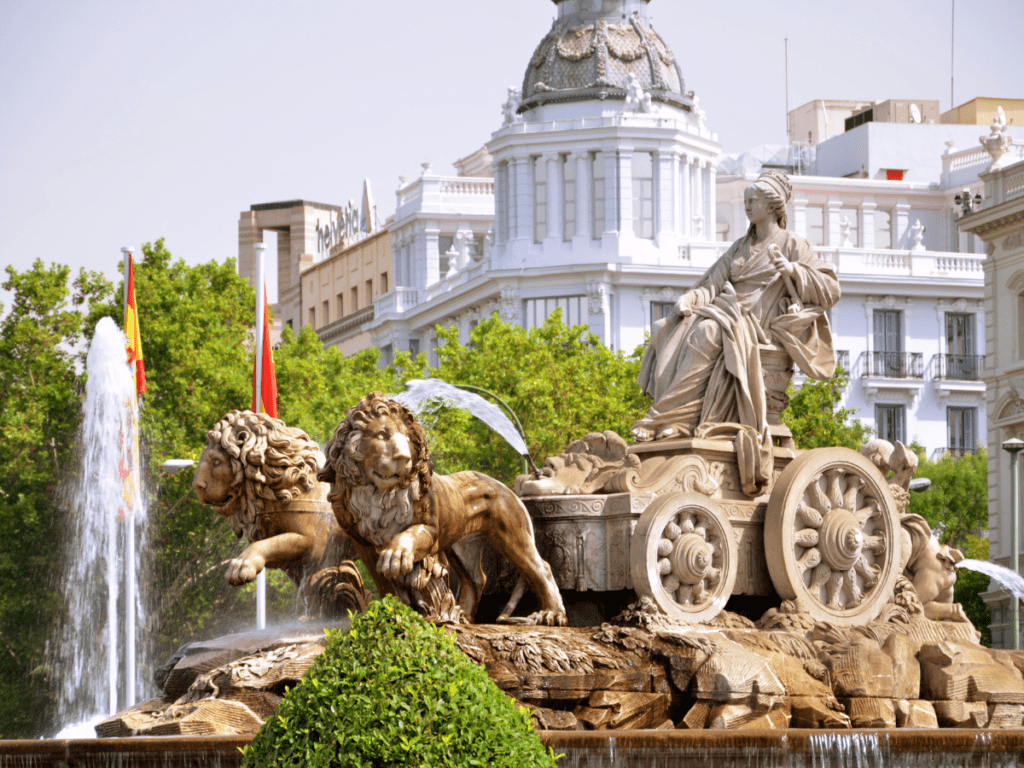
As you head from El Retiro Park to Grand Via, take a few moments to enjoy Plaza de Cibeles. It is a busy traffic intersection where four neighbourhoods meet, and the architecture is stunning.
The most notable building is the Cibeles Palace. It is now Madrid’s city hall, but bizarrely was originally the main post office and telephone exchange. You can enter the palace for a small fee and take in the views from the observation deck.
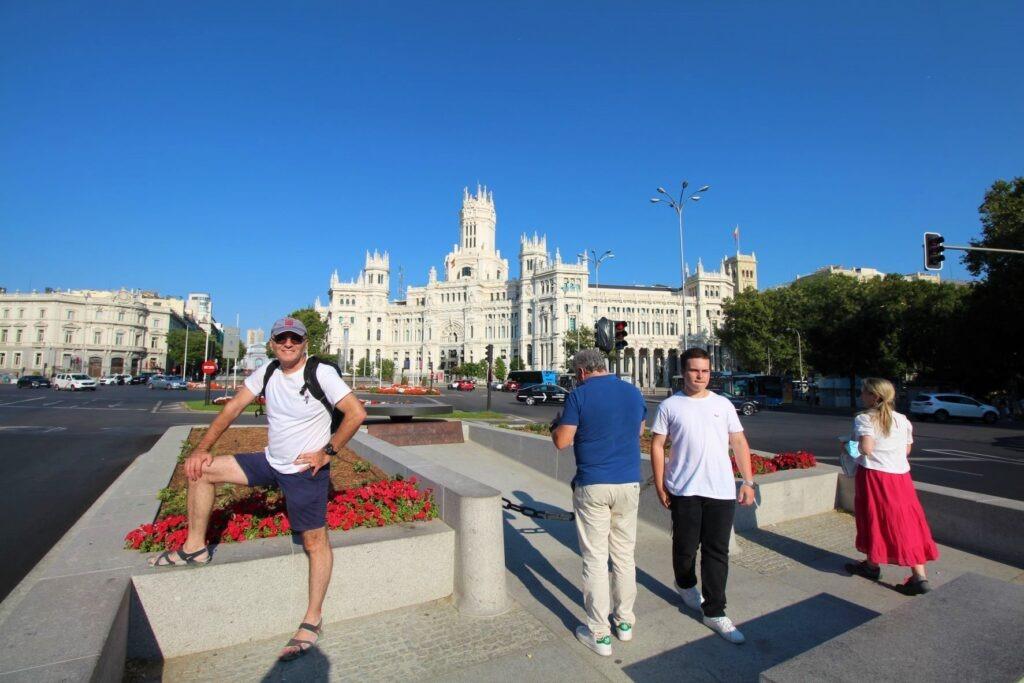
The other corners of the plaza are occupied by the Palacio de Buenavista, the Palace of Linares and the Bank of Spain building. In the centre is a fountain that features the Roman goddess of fertility, Cybele.
Thanks to the amazing lighting that highlights the fountain and buildings, the plaza is a great place for an after dark photo op.
7. Grand Via
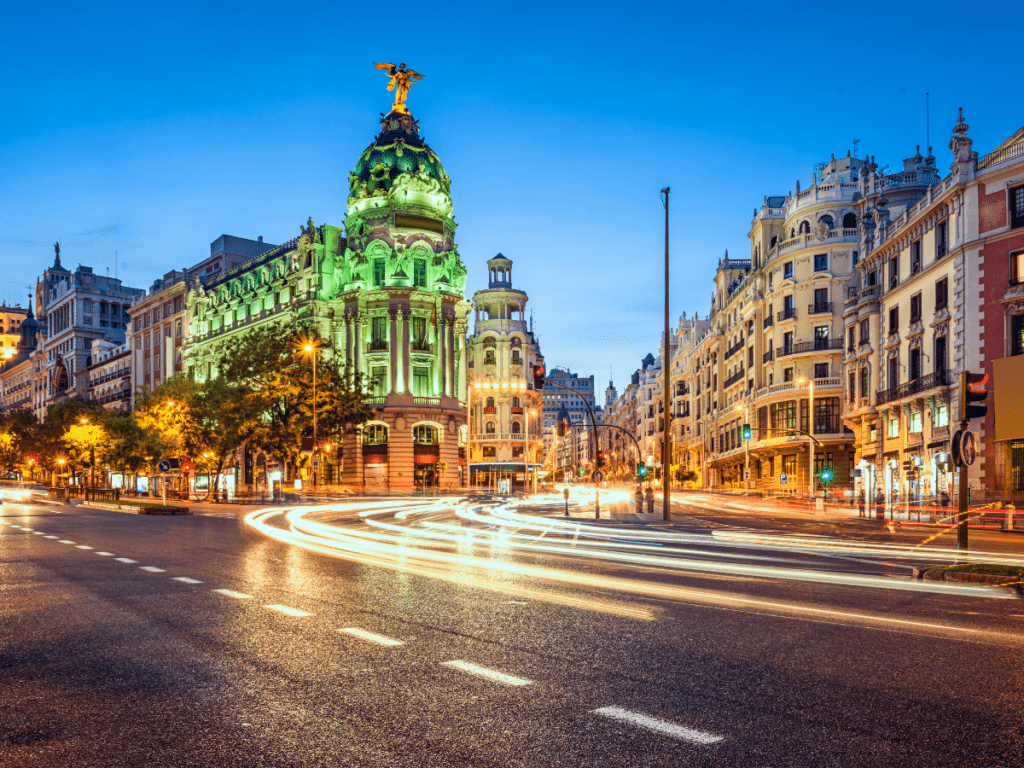
No trip to Madrid would be complete without a stroll along the Grand Via. Carefully designed by urban planners in the late 19th Century as a grand boulevard, Grand Via combines a variety of early 20th Century relativist architectural styles including Art Deco, Art Nouveau, Plateresque, Neo-Mudéjar and many others. So don’t forget to look up or you’ll miss the best the boulevard has to offer.
Today, Grand Via is the heartbeat of commercialism in Madrid with many well-known international brands represented, as well as a vast selection cafes, bars and restaurants.
Enjoy yourself as you wander along and take in the sites of Grand Via, but when it’s time for a drink or a meal, go up one of the many side streets on the northern side for a better value and quality.
8. Puerta del Sol
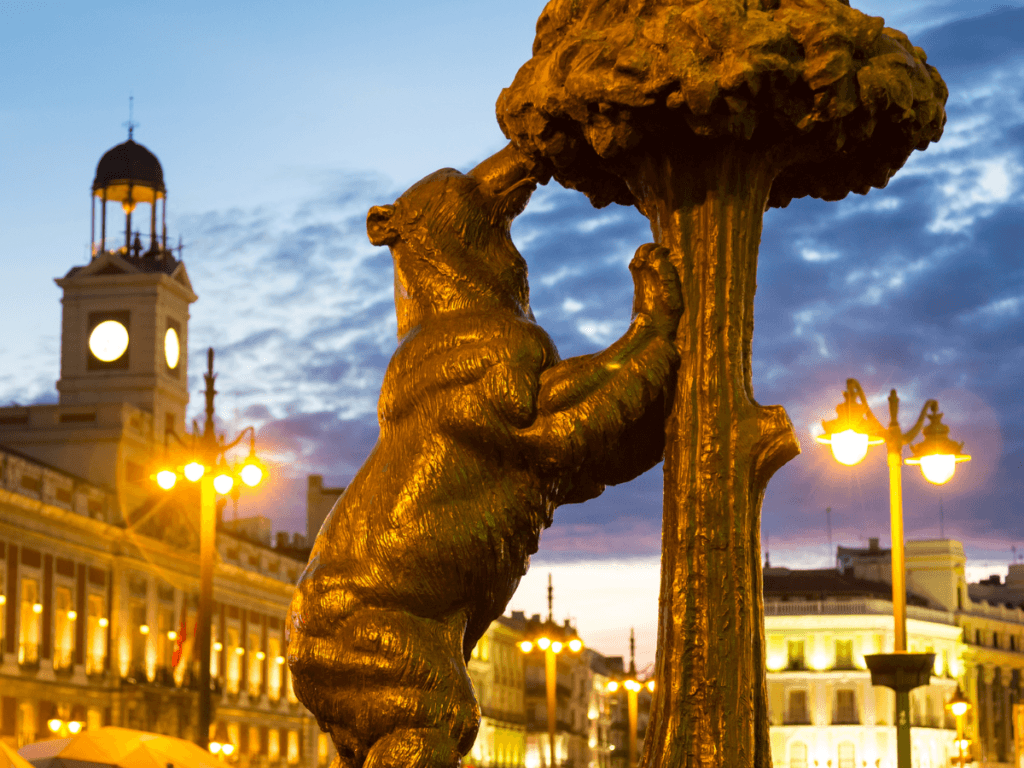
Another historic public space and the true, if not mathematical, centre of both Madrid and Spain is Puerta del Sol which is a few minutes’ walk from Grand Via. Puerta del Sol contains kilometre zero from which all radial roads in Spain are measured, and there’s a plaque that marks the exact spot of KM 0.
It is a chaotically busy place, which is so different from the more orderly chaos of the nearby Plaza Mayor. If you want to find some of the most popular bars and nightclubs or watch street performers from all over Europe, this is the place for you.
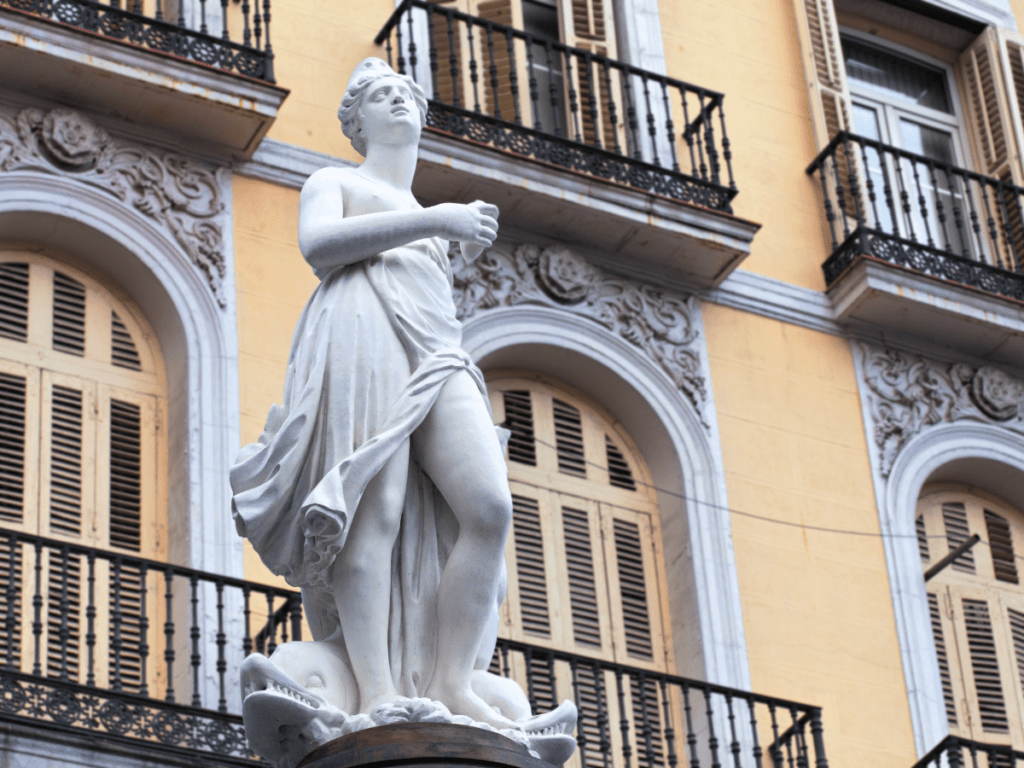
Aside from the shops, bars and cafes, you’ll find a copy of Statue of Mariblanca, the Statue of the Bear and the Strawberry Tree, based on the Madrid coat of arms, a statue of King Charles III and the iconic Tío Pepe sign.
You can also see the famous clocktower, to which all of Spain turns at the stroke of midnight on New Year’s Eve to celebrate the new year by eating the traditional twelve lucky grapes.
9. Royal Palace of Madrid

The Royal Palace of Madrid is the largest palace in Western Europe. While no longer used as a residence by the royal family, it remains the official seat of the monarch. You can tour the grounds and get great exterior views for free, but it’s well worth buying a ticket to go inside.
In addition to the interior of the palace itself, you can see the Royal Armoury, Painting Gallery, Royal Kitchen and observation deck.
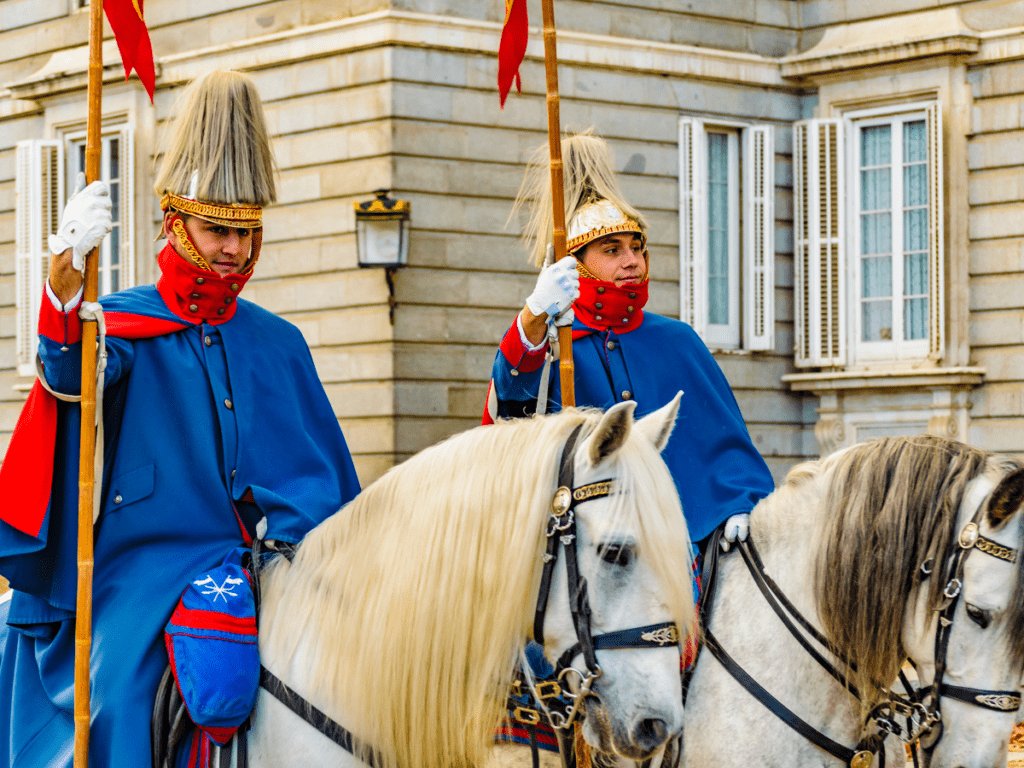
Every Wednesday and Saturday at 11:00 am you can witness the Changing of the Guard. Then on the first Wednesday they hold what is called the Solemn Changing of the Guard, a grand ceremony that rivals anything that London has to offer.
10. Temple of Debod
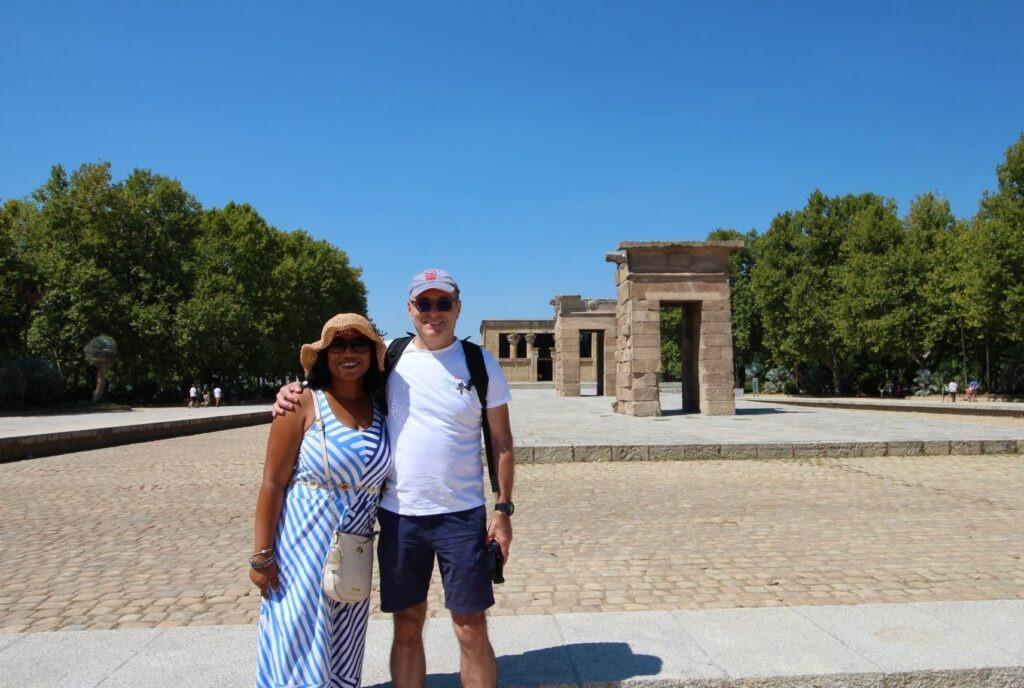
Did you know that the oldest building in Madrid is not Spanish, it’s Egyptian?
The Temple of Debod was gifted by the Egyptian government in 1968 to thank Spain for its help in saving the Abu Simbel temples from the rising waters of the Nile resulting from the construction of the Aswan Dam.
The Temple of Debod was originally constructed in the 2nd Century BCE and was dedicated to the goddess Isis and the god Amun. It was relocated to the centre of Madrid and after being carefully rebuilt and renovated, it was open to the public in 1972. It now offers a wonderful opportunity to experience a genuine flavour of ancient Egypt without leaving the Spanish capital.
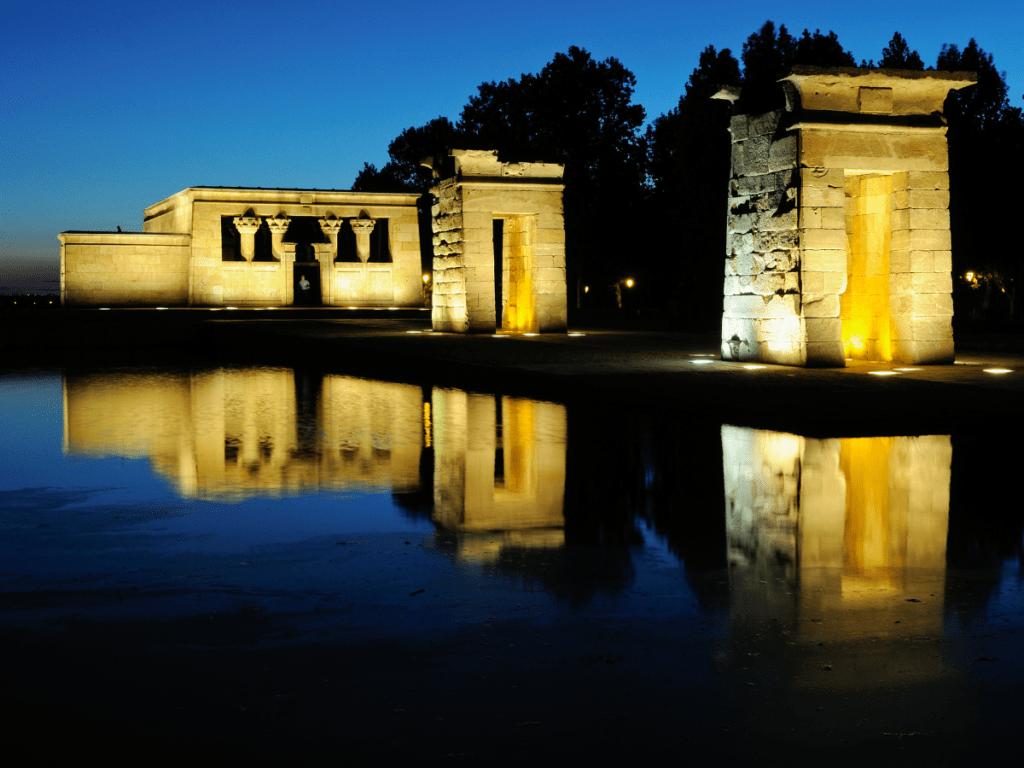
Debod is located in Cuartel de la Montaña Park, close to Plaza de España, and affords wonderful views across the western part of Madrid. You can access the interior of the Temple from Tuesday through Sunday, although it’s closed on Mondays.
Monique and I loved Madrid and can’t wait to go back soon. As most of my family live in Spain, I expect that future trips will involve flights in and out of Madrid so that we can spend more time in this wonderful city as well as get to enjoy another relaxing journey by train to the south of Spain.
Have you been to Madrid and if so, what did you enjoy most? Would you add anything to our top 10 list?
Author
Nick Abbott
Hi, I’m Nick. Visiting foreign countries has been an important part of my life since my parents moved to Kano in Nigeria in 1977. Since then, as both a military officer and in later jobs I have enjoyed the huge privilege of being exposed to many different countries and cultures.
I am delighted to be able to support my wife Monique and Yes2Yolo primarily by contributing travel articles, providing editing and proof-reading services and being a general sounding board.
